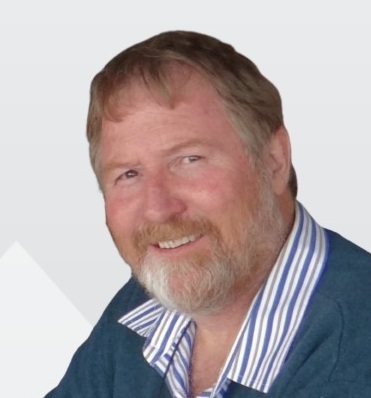
Scientist makes environmental case for marine phosphate

Insisting that there is space for both the existing fishing industry and a future marine phosphate industry, Chris Brown of the Chamber of Environment, this week defended his position on the co-existence of the two industries.
“Marine phosphate mining and fishing are two activities that can operate side by side, with virtually no conflict, to more than double the current economic returns and jobs provided by the Blue Economy,” he stated in reaction to an attack by the fishing industry on the many Environmental Impact Assessment studies which show that there is no significant impact on the marine ecosystem and on the fishing sector, a situation reflected in the Marine Spatial Planning (MSP) process which factors in marine mining, but subject to environmental assessment.
Late last week, the Chairman of the Confederation of Namibian Fishing Associations, Mr Matti Amukwa, released a strongly-worded statement to the media, attacking the environmental impact assessments on phosphate mining, and attempting to bring into disrepute, Dr Brown’s standing as an independent scientist. This followed after an interview with the scientist on his views as an environmental expert, was published in the local media.
Reiterating the future potential and importance of marine phosphate mining, Dr Brown said “The science shows that it has minimal environmental impact on the marine ecosystem, will contribute about 9% of GDP, about 25% more than the fishing industry which contributes 6.6% of GDP, and will support about 50,000 jobs, similar to the fishing industry.”
Regarding the credibility of the Chamber of Environment, and his role as its Chief Executive, Dr Brown stated that an environmentalist is mostly a self-styled role for which no particular qualification is required. An environmental scientist, on the other hand, is qualified in the science of environmental management and does not denounce all development projects on the grounds that they could have some ecological impact.
“Environmental scientists weigh up the ecological, social and economic pros and cons and then arrive at a considered position of what is good for the country in terms of sustainable development. Unemployment and poverty are themselves huge environmental and social risks that could threaten the stability of the country. That is how I arrived at the view that the proposed marine phosphate mining in Mining License area 170 is a good project for Namibia,” he stated.
On Mr Amukwa’s charge that Dr Brown has privileged access to some documentation, the latter said “the full verification study is available to the public on the NMP website which anyone can access. All reports that formed parted of the previous assessment are available on the NMP website. The new independent studies that are not yet released to the public (or to me), and which will be part of the updated EIA, are listed in the Scoping Report, were mentioned in the public consultative meetings, and their key findings were presented. These key findings revealed no issues of concern.”
Public sentiment against marine phosphate mining in New Zealand and Mexico was cited by Mr Amukwa as reason enough to prevent any similar mining in Namibian waters, however, Dr Brown refuted these comparisons, pointing out that the seabed morphology is not the same.
“The issue of marine phosphate mining not being approved in New Zealand is often raised as a reason for not approving marine phosphate mining in Namibia. This has been explained many times, but some people simply do not want to know the facts. In New Zealand, the phosphate occurs in rocky nodules on the ocean floor. These rocky nodules form the substrate for an important cold-water coral and sponge community which provides habitat for many other species. The New Zealand authorities were right not to allow mining there. In Namibia, the phosphate is contained in sand grains on a uniform seabed without any special features. The substrate would be “mined” by means of a suction dredger, down to a maximum of 2.5 m, not the 4-6 m mentioned by Mr Amukwa,” according to Dr Brown.
Speaking to the Economist, Dr Brown said the environmental damage done every year by the fishing industry is larger by orders of magnitude, when compared to marine phosphate mining. “The footprint of the proposed marine phosphate mining in ML 170 is 34 sq km over 20 years – on average 1.7 sq km per year. By contrast, the area of seabed disturbed by bottom trawling fishing vessels is estimated to be at least 18,500 sq km per year.”
As a parting volley, the scientist had this to say: “Mr Amukwa is tilting at windmills, a Don Quixotic fight against an imaginary threat where none exists. Please sir, do not get locked into a position based on emotion and misinformation. Look at the scientific evidence provided by all the independent scientific specialists and independent reviewers. What you are doing is trying to deprive the country of an industry larger than your own fishing industry because of intransigence and ignorance. We can have both industries, Namibia needs both.”











































